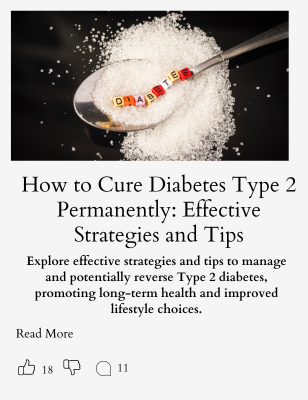Mental and physical health are closely linked, affecting each other in profound ways. Recent studies have shed new light on this connection, revealing how our minds and bodies interact to influence overall well-being. People with severe mental disorders have a 10 to 25-year shorter life expectancy compared to the general population, highlighting the urgent need for integrated health care approaches.

Researchers are uncovering new evidence about the relationship between mental and physical health. This includes insights into how physical health shapes mental well-being, an area that has received less attention in the past. Scientists are now taking a translational approach to understanding the mind-brain-body connection, integrating research from multiple perspectives to improve health outcomes.
New findings suggest that exercise and physical activity play a crucial role in mental health. This connection works both ways, with mental health influencing physical health through various biological and behavioral pathways. As research continues to evolve, it becomes clear that treating mental and physical health as separate entities is outdated and potentially harmful.
Key Takeaways
- Mental and physical health are deeply interconnected, with each significantly impacting the other.
- Exercise and physical activity have been shown to play a crucial role in maintaining good mental health.
- Integrated healthcare approaches are needed to address the complex relationship between mental and physical well-being.
Key Takeaways
Mental and physical health are closely linked. People with serious mental disorders tend to live 10 to 25 years less than the general population.
Physical activity plays a big role in mental well-being. During the COVID-19 pandemic, less exercise was linked to more mental health issues.
New treatments for mental health include:
- Ketamine therapy
- Transcranial magnetic stimulation
- Trauma recovery techniques
- Exercise programs
- Nutrition plans
These approaches aim to improve overall well-being, not just treat specific disorders.
Physical health can shape mental health. This connection works both ways, but the impact of physical health on mental health is less studied.
Policymakers are interested in mental health changes for the whole population. New research is looking at broad effects, not just specific cases.
These findings show the need for a holistic approach to health care. Treating the mind and body together can lead to better outcomes for patients.
Defining Mental and Physical Health
Mental and physical health are closely linked aspects of overall well-being. They each have distinct components that contribute to a person’s health status.
Components of Mental Health
Mental health involves emotional, psychological, and social well-being. It affects how people think, feel, and act. Key components include:
• Emotional regulation
• Stress management
• Self-esteem
• Healthy relationships
• Cognitive function
Mental health also includes the ability to cope with life’s challenges. A mentally healthy person can work productively and contribute to their community.
Mental health exists on a spectrum. It’s not simply the absence of mental illness. People can take steps to improve their mental health, like practicing mindfulness or seeking therapy when needed.
Components of Physical Health
Physical health relates to the body’s functioning. It includes:
• Cardiovascular health
• Muscular strength and endurance
• Flexibility
• Body composition
• Immune system function
Good physical health allows people to perform daily activities without excessive fatigue. It reduces the risk of chronic diseases like diabetes and heart disease.
Regular exercise, proper nutrition, and adequate sleep are crucial for maintaining physical health. Physical health is often measured through various tests and screenings, such as blood pressure checks and fitness assessments.
Interconnection Between Mental and Physical Health
Mental and physical health are closely linked. They affect each other in complex ways. Recent research has shown strong connections between a person’s mental state and their bodily well-being.
Biopsychosocial Model
The biopsychosocial model looks at health as a mix of biological, psychological, and social factors. This view helps explain how mental and physical health interact.
Biological factors include genetics and brain chemistry. Psychological factors involve thoughts, emotions, and behaviors. Social factors cover relationships, culture, and environment.
These elements work together. For example, stress can lead to physical symptoms like headaches or stomach problems. At the same time, chronic illnesses may cause depression or anxiety.
The model shows that treating just one aspect often isn’t enough. A person’s whole life situation needs to be considered for the best health outcomes.
Impact of Mental Health on Physical Diseases
Mental health issues can make physical health problems worse. People with depression are more likely to get heart disease. They also have a harder time recovering from it.
Anxiety can cause high blood pressure and weaken the immune system. This makes a person more likely to get sick. Stress can lead to inflammation in the body. Over time, this raises the risk of many diseases.
Mental health problems can also affect how people take care of themselves. They might not eat well, exercise, or take their medicine as they should. This can make physical health issues even worse.
Treating mental health can help improve physical health. Therapy and medication for depression can lower the risk of heart problems. Stress management techniques can boost the immune system.
Stress and Its Effects on the Body
Stress affects both mental and physical health in significant ways. The body responds to stress through various physiological changes that can impact multiple systems and organs over time.
Physical Manifestations of Stress
Stress triggers the “fight or flight” response in the body. This causes the release of hormones like cortisol and adrenaline. These hormones lead to physical changes such as:
• Increased heart rate and blood pressure
• Rapid breathing
• Muscle tension
• Sweating
The body also diverts energy away from non-essential functions. This can result in:
• Digestive issues
• Weakened immune system
• Sleep problems
Chronic stress can cause ongoing physical symptoms like headaches, fatigue, and body aches. It may also worsen existing health conditions.
Chronic Stress and Disease Risk
Long-term stress takes a toll on the body. It’s linked to increased risk of several serious health issues:
• Heart disease and high blood pressure
• Diabetes
• Depression and anxiety
• Gastrointestinal problems
Chronic stress can speed up cellular aging. It may also lead to unhealthy coping behaviors like overeating or substance use.
Mental stress is tied to higher rates of cardiovascular disease. It can cause inflammation and changes in the nervous system. These effects may damage blood vessels over time.
Stress management is key for both mental and physical health. Techniques like exercise, meditation, and therapy can help reduce stress’s impact on the body.
Mental Health Disorders and Chronic Illnesses
Mental health problems and long-term physical illnesses often go hand in hand. They can make each other worse. This link shows up clearly in two common pairings.
Depression and Heart Disease
Depression and heart disease often occur together. People with heart problems are more likely to feel depressed. Those with depression face a higher risk of heart issues.
Depression can make it hard for patients to:
• Take their heart medicines
• Eat healthy foods
• Exercise regularly
• Quit smoking
These habits are key for heart health. Doctors now check heart patients for signs of depression. They know treating both conditions leads to better results.
Anxiety and Immune System Functioning
Anxiety affects how the body fights illness. When someone feels very anxious, it can weaken their immune system. This makes it harder to fight off germs.
Chronic stress from anxiety can cause:
• More inflammation in the body
• Slower wound healing
• Higher risk of catching colds and flu
People with anxiety may also have trouble sleeping. Poor sleep can further hurt the immune system. Treating anxiety often helps boost overall health.
Positive Mental Health and Disease Prevention
Positive mental health plays a crucial role in preventing physical diseases and promoting overall well-being. It involves developing resilience and practicing self-care to improve health outcomes.
Resilience and Physical Health Outcomes
Resilience helps people cope with stress and adversity, which can reduce the risk of various health problems. Studies show that resilient individuals have lower rates of cardiovascular disease and stronger immune systems.
Developing resilience involves:
- Building strong social connections
- Maintaining a positive outlook
- Practicing mindfulness and relaxation techniques
These strategies can lead to better sleep, reduced inflammation, and improved blood pressure control. Resilient people are also more likely to engage in healthy behaviors like regular exercise and balanced nutrition.
Self-Care and Health Promotion
Self-care practices are essential for promoting positive mental health and preventing physical ailments. Regular self-care can reduce the risk of chronic diseases and improve overall quality of life.
Key self-care activities include:
- Getting adequate sleep (7-9 hours per night)
- Eating a balanced diet rich in fruits, vegetables, and whole grains
- Engaging in regular physical activity
- Managing stress through relaxation techniques or hobbies
These practices can help maintain a healthy weight, boost immune function, and reduce the risk of conditions like diabetes and heart disease. Self-care also promotes better mental health, creating a positive cycle of overall well-being.
Exercise, Diet, and Mental Health
Physical activity and nutrition play key roles in maintaining mental health. Both exercise and diet can positively impact mood, stress levels, and overall mental well-being.
Physical Activity and Mental Well-Being
Regular exercise boosts mood and reduces symptoms of depression. Studies show that all types of physical activity, from walking to resistance training, can improve mental health.
Higher intensity exercise for shorter periods seems especially beneficial. Aim for about 30 minutes of activity daily for the best mental health benefits.
Yoga and mind-body exercises are particularly effective at reducing anxiety. These practices combine physical movement with mindfulness techniques.
Exercise also helps manage stress, improve sleep, and boost self-esteem. These factors all contribute to better overall mental health and well-being.
Nutritional Psychiatry
Diet quality is linked to mental health outcomes. Eating a balanced, nutritious diet supports both physical and mental wellness.
Some key nutrients for mental health include:
- Omega-3 fatty acids (found in fish, flaxseed, and walnuts)
- B vitamins (found in whole grains, eggs, and leafy greens)
- Antioxidants (found in colorful fruits and vegetables)
Healthy eating habits may help manage symptoms of mental health conditions. A diet rich in whole foods and low in processed foods is recommended.
Staying hydrated is also important for mental clarity and mood regulation. Limiting alcohol and caffeine intake can help stabilize mood and improve sleep quality.
The Role of Healthcare Professionals
Healthcare professionals play a vital part in addressing both mental and physical health needs. They work to provide integrated care and promote overall wellbeing through various approaches.
Integrative Care Approaches
Integrative care combines mental and physical health treatments. This approach helps patients with severe mental disorders who often have shorter life expectancies. Healthcare teams work together to treat the whole person.
Some key aspects of integrative care include:
• Co-located services
• Multidisciplinary teams
• Normalized mental health care
Providing mental and physical care in one place makes it easier for patients to get help. It also reduces stigma around mental health treatment. Teams of doctors, nurses, and therapists collaborate to create complete care plans.
Psychiatry and Lifestyle Medicine
Psychiatrists are expanding their focus to include lifestyle factors. This shift aims to improve both mental and physical health outcomes. They now consider diet, exercise, and sleep habits alongside traditional treatments.
Key areas of focus include:
• Stress management
• Nutrition counseling
• Physical activity promotion
Healthcare professionals face challenges like burnout and stress. Addressing these issues is crucial for providing quality care. Training in lifestyle medicine helps professionals better support their own and patients’ overall health.
Patient Case Studies and Reports
Real-world examples show how mental health care impacts physical wellbeing. Patient stories highlight the connection between mind and body in treatment and recovery.
Managing Physical Symptoms with Mental Health Therapy
Mental health therapy can help manage physical symptoms in surprising ways. For example, cognitive behavioral therapy has been shown to reduce chronic pain in some patients.
Relaxation techniques taught in therapy sessions can lower blood pressure and ease digestive issues. Patients report fewer headaches and better sleep after addressing underlying anxiety or depression.
One case study found that talk therapy helped a patient with unexplained fatigue. By working through emotional trauma, their energy levels improved dramatically. This highlights how mental health impacts physical symptoms.
Recovery Stories and Holistic Health
Holistic approaches considering both mental and physical health lead to powerful recoveries. One patient with severe depression saw improvements in their physical health after starting medication and therapy.
Their chronic back pain lessened as their mood lifted. They also found the motivation to exercise regularly, further boosting their overall health. Another individual’s recovery from an eating disorder included both nutritional counseling and mental health support.
This combined approach restored their physical health while addressing underlying mental health issues. These stories show how treating the whole person – mind and body – leads to better outcomes.
Technological Advancements in Mental and Physical Health Integration
New technologies are transforming how we approach mental and physical health together. These tools make it easier for people to take care of their overall wellbeing.
Mobile Health (mHealth) Applications
Mobile health apps are changing how people manage their mental and physical health. Many apps track both mood and exercise, helping users see connections between their mental state and physical activity.
Some popular features include:
• Mood tracking diaries
• Step counters and workout logs
• Meditation and mindfulness exercises
• Sleep tracking
These apps often use reminders and goals to keep users engaged. They can provide insights by showing patterns over time.
Many mental health apps now include features for physical wellness too. This reflects growing awareness of how closely mental and physical health are linked.
Teletherapy and Remote Monitoring
Teletherapy services have made mental health care more accessible. People can now talk to therapists from home using video calls. This removes barriers like travel time and costs.
Remote monitoring tools let healthcare providers track patients’ progress. Wearable devices can measure things like:
• Heart rate
• Sleep quality
• Physical activity levels
This data helps doctors and therapists see how lifestyle factors affect mental health. It allows for more personalized treatment plans.
Teletherapy also makes it easier to coordinate mental and physical healthcare. Different specialists can work together more easily when care is provided online.
Policy and Public Health Strategies
Mental health policies and public health strategies play a key role in addressing mental health issues. These approaches aim to improve mental wellbeing and reduce the burden of mental illness on individuals and society.
Mental Health Legislation
Mental health legislation forms the backbone of national strategies to support mental health. Many countries have laws that protect the rights of people with mental health conditions. These laws often focus on access to treatment and non-discrimination.
Some key areas of mental health legislation include:
- Mandating insurance coverage for mental health services
- Protecting patient privacy and confidentiality
- Regulating involuntary treatment and hospitalization
- Ensuring workplace accommodations for mental health needs
Effective laws also promote early intervention and prevention programs. They may require mental health education in schools or set standards for mental health screenings.
Community Programs and Prevention
Community-based initiatives are vital for promoting mental health and preventing mental illness. These programs often take a population health approach, targeting entire communities rather than just individuals.
Some effective community strategies include:
- School-based mental health programs
- Workplace mental health initiatives
- Public awareness campaigns to reduce stigma
- Support groups for people with mental health conditions
Prevention efforts focus on addressing risk factors for mental illness. This may involve tackling social issues like poverty, discrimination, or trauma. It also includes promoting protective factors such as strong social connections and coping skills.
Community programs often integrate mental and physical health services. This approach recognizes the strong link between mental and physical wellbeing.
Frequently Asked Questions
Mental health and physical health are deeply interconnected. They affect each other in complex ways. Understanding these links can help people improve their overall well-being.
How does one’s psychological well-being influence their physical health outcomes?
Good mental health can lead to better physical health. People with positive mental states often make healthier choices. They may eat better, exercise more, and avoid risky behaviors.
Mental well-being can also boost the immune system. This helps fight off illnesses. Patients with severe mental disorders have shorter life expectancies, showing the strong link between mental and physical health.
Can improvements in physical health lead to better mental health?
Yes, physical health improvements can enhance mental well-being. Regular exercise is a prime example. It releases endorphins, which improve mood and reduce stress.
Physical activity can lower depression and anxiety symptoms, especially in older adults. A healthy diet and good sleep habits also support mental health.
What role does mental health play in the management of chronic physical illnesses?
Mental health is crucial in managing long-term physical conditions. Depression or anxiety can make it harder to follow treatment plans. This can worsen physical symptoms.
Good mental health helps patients cope better with chronic illnesses. It can improve treatment adherence and outcomes. Mental health support is often part of comprehensive care for chronic conditions.
Are there long-term physical health consequences of prolonged mental health issues?
Yes, ongoing mental health problems can harm physical health. Chronic stress can lead to high blood pressure and heart disease. Depression may increase the risk of diabetes and other illnesses.
Mental health issues can also cause sleep problems. Poor sleep can weaken the immune system and lead to various health issues over time.
How do stress and mental health disorders impact the body’s physiological functions?
Stress and mental disorders can affect many body systems. They can raise heart rate and blood pressure. This puts strain on the cardiovascular system.
Mental health issues can disrupt hormone levels. This can affect metabolism, sleep, and immune function. Chronic stress can lead to inflammation, which is linked to many health problems.
What are effective strategies for promoting both mental and physical health simultaneously?
Regular exercise is a powerful tool for both mental and physical health. It improves mood and physical fitness at the same time.
A balanced diet supports both brain and body health. Mindfulness practices like meditation can reduce stress and improve overall well-being. Getting enough sleep is also crucial for mental and physical recovery.
Conclusion
Mental and physical health are deeply intertwined. New research shows strong connections between the mind and body.
People with mental health issues often face shorter life expectancy due to physical health problems. This highlights the need for better integrated care.
Studies reveal that physical health shapes mental well-being. The reverse is also true – mental health impacts physical health outcomes.
A healthy lifestyle benefits both mental and physical health. Exercise, nutrition, and sleep play key roles in overall wellness.
Scientists are exploring the mind-brain-body connection from multiple angles. This research may lead to new treatments and interventions.
Future studies will likely uncover more links between mental and physical health. This knowledge can help improve healthcare and quality of life for many people.















